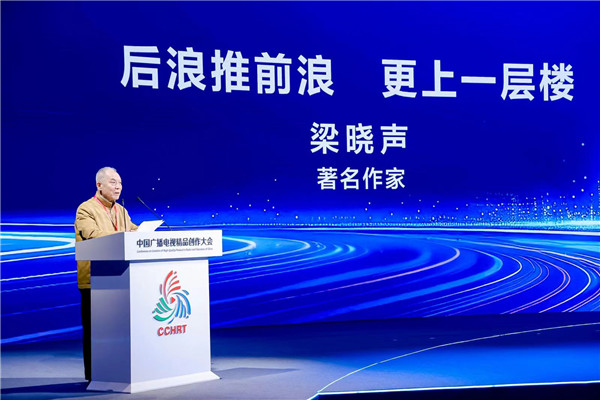

In recent years, a slew of hit TV dramas and online series have been adaptations award-winning literary works. Examples include To the Wonder, based on Li Juan's beloved essay collection My Altay; Blossoms Shanghai, adapted from novelist Jin Yucheng's Mao Dun Literature Prize-winning novel Fan Hua (Blossoms); and The Human World, based on writer Liang Xiaosheng's eponymous family saga.
A large group of renowned writers, screenwriters, directors, producers, actors, and other radio and television industry experts and scholars gathered at a forum on Saturday in Beijing to exchange views and experience on how to better adapt famous literary works into TV series, as part of the Conference on Creation of High-Quality-Product in Radio and Television of China, held from Friday to Sunday.
In his keynote speech, Liang Xiaosheng said that even though China boasts rich literary and artistic resources, they are by no means inexhaustible. The author argued that innovative and transformative use of those resources requires young TV drama creators to tell stories well while creating convincible characters, ensure the plot is coherent while adding details to flesh out the story and promote universal values while telling good stories.
"Outstanding literary works are a treasure trove for TV series producers," said Cao Huayi, president of New Classics Media. This Beijing-based production company has created many popular small-screen adaptations of Chinese novels over its 17-year history.
He said that when adapting works of series literature, creators must retain the soul of the original work through casting, acting and stage-set design to reenact the historical period and regional culture in which the story is set. While creating urban romance dramas, creators do not need to stay true to the time and place in the original novel. Instead, they should capture the novel's emotional core and ensure the drama can resonate with the contemporary audience.